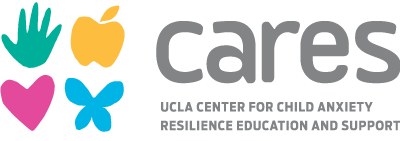Ever since the COVID-19 pandemic came about, we have witnessed immense societal change including quarantining at home, zoom classes, endless Netflix shows, and more. Beyond our at-home issues, we are bombarded by countless new alerts, stories about economic downturn, and re-opening issues. Seeing the amount of things happening around the world and having to stay at home, we can feel out of control and, oftentimes, overlook our mental health. However, learning about self-care and managing your stress is important to protect your physical and emotional well-being.
Amidst the pandemic, the prevalence of anxiety among youth rose up to around 18.9 – 37.4% and depressive symptoms to around 22.3 – 43.7%. Considering how widespread anxiety and depression is, it is important to understand how they can present themselves. Oftentimes, young kids are more likely to manifest symptoms like clinginess and fear of family members contracting COVID, and older kids can show inattention or persistent inquiry, along with irritability. In addition, many adolescents reported high concerns about COVID-19, and this stress was associated with increased loneliness and depression. The higher their school grade was the higher the prevalence of depression and anxiety. Even from a parent perspective, it is equally important for parents to respect and value their own mental health also as it can often have effects on your child’s mental health as well. With that said, let’s find out some ways to reduce anxiety during this pandemic.
#1: Limiting News
With a breaking news alert almost every couple of hours, it has been hard to stay off the news lately. But with the constant politics and medical comotion on the headlines, it can take a toll on our mental health. In fact, studies have pointed out that spending increased time on COVID-19 related news and poor sleep quality were associated with increased anxiety. Compared to people who spent just 30 minutes a day or less following the news, people who spent upwards of 1 hour on the news or longer saw increased levels of state anxiety scores. So, it is helpful to unwind, respect your space, and tune out the news for at least a little bit every day.
#2: Reducing smartphone/internet use
It is easy to just spend all day on your phone or computer being at home all day; however, it is a good idea to set aside electronics for sometime everyday to improve your mental health. Smartphone and internet addiction have been cited as critical factors affecting anxiety and depressive symptoms across age groups, and some studies have even shown the relationship of COVID anxiety to problematic smartphone usage. Accordingly, putting away your phone or computer for a while can have drastic effects on reducing stress and anxiety.
#3: Talking to friends and family
Another way to reduce anxiety is keep in touch with friends and friends. Although keeping in touch with people isn’t the same as before, it is vital to keep contact with your social circles even virtually. The research on anxiety has indicated that higher levels of perceived social support was linked to lower anxiety, and living alone often contributed to increased anxiety. So, despite the difficulty in communication, reach out to a loved one or friend and ask how they are doing.
#4: Physical activity
Physical activity is a great way to keep up physical and mental wellness. Try going outside for a walk (remember to social distance and wear a mask) or try doing some exercises at home to use up some of the extra time you may have. Getting some fresh air and taking care of your body are some of the best ways to improve mental health, and it has even been associated with lower psychological symptoms.
#5: Positive parenting environment
Specifically, for the parents, it is important to take care of your mental health too. COVID-19 has affected all of us, some more than others. Some may be experiencing problems with their job or income or additional stressors, and these can all contribute to increased anxiety. The research even shows that parental stress and parenting stress were associated with increased child psychological difficulties. It is beneficial to set an example for your children by explaining the situation as best as possible and trying to encourage a positive environment at home.
#6: Credible health information (sanitation, masks, hygiene)
Finally, getting the right health information is crucial. Get the right facts from credible organizations like the Center for Disease Control and Prevention (CDC) and World Health Organization (WHO). With rumors being spread about COVID all the time, it is essential that you know where to get the reliable up-to-date facts to stay safe and optimize your healthcare. Be alert for signs and symptoms and talk to your doctor if you experience any.
Thank you so much for reading this article. We hope it helped you learn about ways to take care of your mental health during this pandemic. Now, remember to social distance, and have a great rest of your day!
My name is Pranav, and I am a high school senior in Michigan.
We are excited to invite community voices to share their perspectives and insights about anxiety. Thank you to Pranav for being our very first community contributor!
My Instagram handle is @pranav.kancherla

References:
Cakiroglu, S., Yeltekin, C., Fisgin, T., Oner, O. B., Aksoy, B. A., & Bozkurt, C. (2020). Are the Anxiety Levels of Pediatric Hematology-Oncology Patients Different From Healthy Peers During the COVID-19 Outbreak?. Journal of pediatric hematology/oncology, 10.1097/MPH.0000000000001924. Advance online publication.
Cao, W., Fang, Z., Hou, G., Han, M., Xu, X., Dong, J., & Zheng, J. (2020). The psychological impact of the COVID-19 epidemic on college students in China. Psychiatry research, 112934.
Chang, J., Yuan, Y., & Wang, D. (2020). Nan fang yi ke da xue xue bao = Journal of Southern Medical University, 40(2), 171–176.
Duan, L., Shao, X., Wang, Y., Huang, Y., Miao, J., Yang, X., & Zhu, G. (2020). An investigation of mental health status of children and adolescents in china during the outbreak of COVID-19. Journal of affective disorders.
Elhai, J. D., Yang, H., McKay, D., & Asmundson, G. (2020). COVID-19 anxiety symptoms associated with problematic smartphone use severity in Chinese adults. Journal of affective disorders, 274, 576–582.
Ellis, W. E., Dumas, T. M., & Forbes, L. M. (2020). Physically isolated but socially connected: Psychological adjustment and stress among adolescents during the initial COVID-19 crisis. Canadian Journal of Behavioural Science / Revue canadienne des sciences du comportement, 52(3), 177-187.
Guo, J., Fu, M., Liu, D., Zhan, B., Wang, X., & van IJzendoorn, M. H. (2020). Is the Psychological Impact of Exposure to COVID-19 Stronger in Adolescents with Pre-Pandemic Maltreatment Experiences? A Survey of Rural Chinese Adolescents. Child Abuse & Neglect, 104667.
Jiao, W. Y., Wang, L. N., Liu, J., Fang, S. F., Jiao, F. Y., Pettoello-Mantovani, M., & Somekh, E. (2020). Behavioral and emotional disorders in children during the COVID-19 epidemic. The journal of Pediatrics, 221, 264.
Lebel, C., MacKinnon, A., Bagshawe, M., Tomfohr-Madsen, L., & Giesbrecht, G. (2020). Elevated depression and anxiety symptoms among pregnant individuals during the COVID-19 pandemic. Journal of affective disorders, 277, 5–13. Advance online publication.
Nekliudov, N. A., Blyuss, O., Cheung, K. Y., Petrou, L., Genuneit, J., Sushentsev, N., Levadnaya, A., Comberiati, P., Warner, J. O., Tudor-Williams, G., Teufel, M., Greenhawt, M., Dunn Galvin, A., & Munblit, D. (2020). Excessive media consumption about COVID-19 is associated with increased state anxiety: Outcomes of a large online survey in Russia. Journal of medical Internet research, 10.2196/20955. Advance online publication.
Ozamiz-Etxebarria, N., Dosil-Santamaria, M., Picaza-Gorrochategui, M., & Idoiaga-Mondragon, N. (2020). Stress, anxiety, and depression levels in the initial stage of the COVID-19 outbreak in a population sample in the northern Spain. Niveles de estrés, ansiedad y depresión en la primera fase del brote del COVID-19 en una muestra recogida en el norte de España. Cadernos de saude publica, 36(4), e00054020.
Pınar Senkalfa, B., Sismanlar Eyuboglu, T., Aslan, A. T., Ramaslı Gursoy, T., Soysal, A. S., Yapar, D., & İlhan, M. N. (2020). Effect of the COVID-19 pandemic on anxiety among children with cystic fibrosis and their mothers. Pediatric pulmonology, 55(8), 2128–2134.
Rosen, Z., Weinberger-Litman, S. L., Rosenzweig, C., Rosmarin, D. H., Muennig, P., Carmody, E. R., … & Litman, L. (2020). Anxiety and distress among the first community quarantined in the US due to COVID-19: Psychological implications for the unfolding crisis.
Spinelli, M., Lionetti, F., Pastore, M., & Fasolo, M. (2020). Parents’ Stress and Children’s Psychological Problems in Families Facing the COVID-19 Outbreak in Italy. Frontiers in Psychology, 11, 1713.
Wang, C., Pan, R., Wan, X., Tan, Y., Xu, L., Ho, C. S., & Ho, R. C. (2020). Immediate Psychological Responses and Associated Factors during the Initial Stage of the 2019 Coronavirus Disease (COVID-19) Epidemic among the General Population in China. International journal of environmental research and public health, 17(5), 1729.
Xie, X., Xue, Q., Zhou, Y., Zhu, K., Liu, Q., Zhang, J., & Song, R. (2020). Mental health status among children in home confinement during the coronavirus disease 2019 outbreak in Hubei Province, China. JAMA pediatrics.
Zhou, S. J., Zhang, L. G., Wang, L. L., Guo, Z. C., Wang, J. Q., Chen, J. C., … & Chen, J. X. (2020). Prevalence and socio-demographic correlates of psychological health problems in Chinese adolescents during the outbreak of COVID-19. European Child & Adolescent Psychiatry, 1-10.
